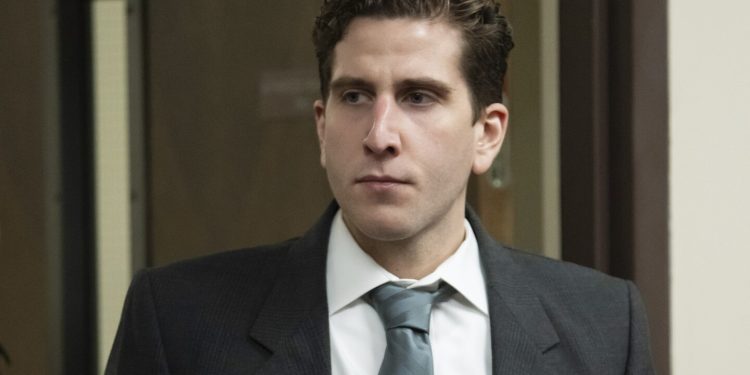BOISE, Idaho (AP) — Lawyers for a man charged with murder in connection with the killings of four students from the University of Idaho are asking a judge to toss out most of the evidence in this case because they say it all hinges on an unconstitutional genetic investigative process.
That of Bryan Kohberger The defense team also argues that the search warrants in this case were tainted by police misconduct. A two-day hearing on the matter began Thursday morning and much of it was closed to the public. If they win their case, it could put a major damper on the prosecution’s case before the trial begins in August.
Kohberger is charged with four counts of murder in connection with the deaths of Ethan Chapin, Xana Kernodle, Madison Mogen and Kaylee Goncalves, who were killed early in the morning on November 13, 2022, at a rental house near the campus in Moscow, Idaho. When asked to plead guilty last year, Kohberger remained silent, prompting a judge to enter a not guilty plea on his behalf. Prosecutors said they would seek the death penalty if Kohberger was convicted.
Kohberger’s lawyers say law enforcement violated his constitutional rights when they used a process called Investigative Genetic Genealogy, or IGG, to identify possible suspects.
“There would be no investigation into him without this initial constitutional violation,” attorneys Jay Weston Logsdon and Ann Taylor wrote in a court filing. They then continued: “Without IGG, there is no file, no request for telephone recording, no surveillance of his parents’ home, no DNA taken from the trash cans in front of the house. Because the IGG analysis is the basis of this case, everything in the affidavit must be removed.
The IGG process often begins when DNA found at a crime scene does not return any matches in standard law enforcement databases. When this happens, investigators can look at any variations, or single nucleotide polymorphisms, present in the DNA sample. These SNPs, or “snips,” are then uploaded to a genealogy database such as GEDmatch or FamilyTreeDNA to search for possible relatives of the person whose DNA was found at the scene.
In Kohberger’s case, investigators said they found “touch DNA,” or traces of DNA, on the sheath of a knife found in the house where the students were fatally stabbed. The FBI used the IGG process on this DNA and the information identified Kohberger as a possible suspect.
Latah County Prosecutor Bill Thompson and the rest of the prosecution team say there is nothing unconstitutional about the use of the IGG, noting that Kohberger’s relatives voluntarily provided their own DNA to a genetic genealogy service. They have also argued in court filings that the case law is clear: Defendants have no reasonable right to privacy for DNA left at a crime scene.
The defense team also claims that once Kohberger was identified as a possible suspect, law enforcement officers deliberately or recklessly lied or omitted crucial information when they asked the court to issue warrants. search warrants for his apartment, his parents’ house, his car, his cell phone. and even for its own DNA. They also want all this evidence removed from the trial.
However, specific details of alleged police misconduct are hidden from the public; 4th District Judge Steven Hippler kept most of those court records, as well as numerous court documents about the IGG evidence, under seal. Hippler ordered part of the hearing to be held behind closed doors and said privacy was necessary to prevent potential jurors from being “tainted” by hearing evidence that might not be allowed to the court. trial.
On Wednesday, a coalition of news organizations, including the Associated Press, asked the judge to reconsider secrecy.
“In any criminal case, I would argue that it is of extreme public interest to know whether a law enforcement officer sworn to tell the truth… made reckless or false statements” during an investigation, said the news organizations’ lawyer, Wendy Olson. during a hearing Wednesday. The United States Supreme Court has held that the public and the press have a right under the First Amendment to open court proceedings, it said, and that open courts also help protect rights of the accused.
“Openness and transparency are more important than ever to maintain and restore trust in our government institutions,” Olson said.
The judge was not convinced.
“I don’t think much has changed in terms of the need to protect jurors here, given the intense media attention that followed and continues to follow this case,” Hippler said. “We will be challenged, at best, to get a jury that has not been overly exposed to this…and in particular, exposed to evidence that might not be considered in this trial .”
The judge said no one would be allowed into the courtroom, but the open portions of the hearing would be broadcast live from the court. YouTube page.


